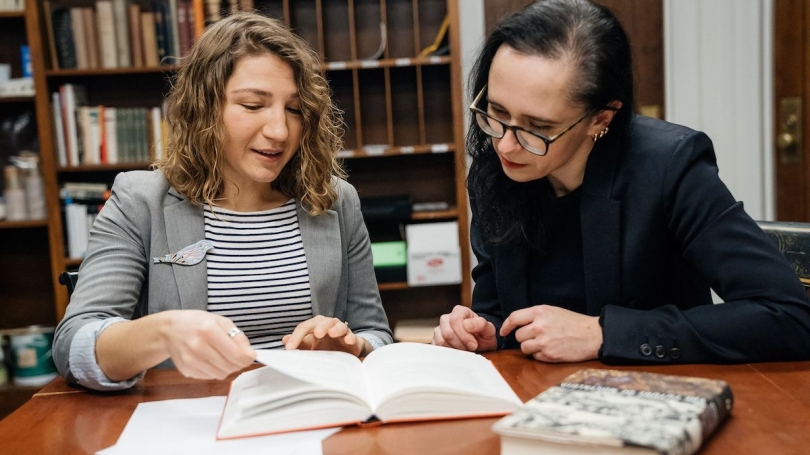
German studies professor Yuliya Komska, right, works with Tetiana Savchynska, Guarini ’18, who has translated numerous English texts into Ukrainian under contract with the Old Lion Publishing House, one of the biggest Ukrainian publishers.
Emerging scholars, literary translators, and other champions of culture strengthen their voices through the Dartmouth master's program in comparative literature, which will mark its 30th anniversary in 2025.
Dartmouth's MA Program in Comparative Literature recently received more than 100 applications from college graduates around the world—nearly triple the number received in previous years.
As the graduate program approaches its 30th anniversary in 2025, its alumni can be found enriching the study and practice of the humanities through an array of roles in academia and beyond. Emerging scholars, literary translators, creative writers, and other champions of culture find their footing at Dartmouth—a factor many attribute to the program's small size and dedicated faculty.
The highly selective Guarini School of Graduate and Advanced Studies program will welcome 11 graduate students in the fall, each of whom will pursue a self-directed curriculum of learning, reading, and research in the comparative study of literature and culture. All accepted students receive a full-tuition waiver and a stipend to cover the majority of living expenses for nine-and-a-half months.
Because as many as 40 faculty and postdoctoral scholars are affiliated with the Program in Comparative Literature, many holding joint appointments with departments across the Arts and Sciences, students have a wide array of mentors to choose from.
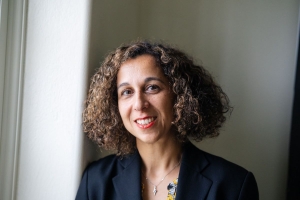
German Studies Associate Professor Veronika Fuechtner, chair of the comparative literature program, says the large, yet close-knit faculty prepare students for a wide trajectory of careers. Graduates go on to top humanities PhD programs around the world as well as professions that benefit from academic training in the humanities, such as the visual arts, music, and film production.
"For example, Veronika Yadukha, Guarini '23, from Ukraine, is a translator and curator," Fuechtner says. "Rachel Starr, Guarini '13, now works at the library at Dartmouth after adding a degree in library science to her comparative literature degree."
Tetiana Savchynska, Guarini '18, has translated numerous English texts into Ukrainian under contract with one of the biggest Ukrainian publishers, including the novel The Buried Giant by Kazuo Ishiguro, which she finished just as he was awarded the Nobel Prize—an experience Savchynska wrote about in an essay (that originated in one of her classes at Dartmouth) in the blog of the Los Angeles Review of Books.
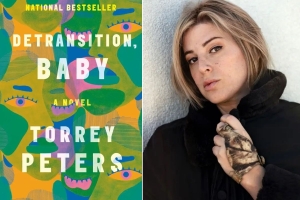
Camella Pham, Guarini '23, was recently announced as the winner of this year's Presidential Master's Prize for the best thesis from the American Comparative Literature Association.
Still another graduate success story: Torry Peters, Guarini '13, whose novel, Detransition, Baby won the 2021 PEN/Hemingway award for debut fiction. It was also a finalist for the National Book Critics Circle Awards and the Brooklyn Public Library Award.
While a majority of students complete their master's as a stop on their way to a PhD program, some discover that they don't want to continue in academia.
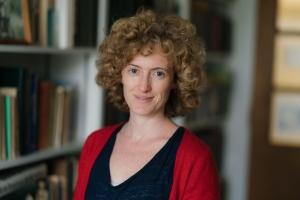
"We think this is an equally valid outcome—better to take a year to figure that out than five or six years into a PhD program—and we incorporate conversations about nonacademic or academic-adjacent career paths into the programming for all the master's students," says Ainsley Morse, associate professor of East European, Eurasian, and Russian Studies, who serves this year as the master's program's graduate director.
"Students get a lot of individual attention from our faculty—the dedicated faculty who teach graduate seminars, the wonderful faculty members who agree to serve as advisors for the MA students, and the broader network of faculty who host them in their regular classes," Morse says.
"I have heard many times from students who come here from bigger institutions that they are really delighted by the availability and generosity of the faculty here."
Innovative from the Start
With its focus on incorporating primary sources from multiple languages and cultures into original research, the study of comparative literature benefits from mastery of more than one language.
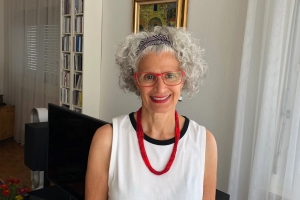
"Dartmouth was especially well suited to launch a graduate program in comparative literature because of our strong language programs, including the method developed by John Rassias, which brought people up to speed very quickly," says one of the program's earliest faculty members, Irene Kacandes, the Dartmouth Professor of German Studies and Comparative Literature
"The program founders, including, among others, Susanne Zantop, Marianne Hirsch, Monika Otter, and Diana Taylor, designed something very interesting, with a creative approach."
Literary theory, Kacandes recalls, was then less prominent in undergraduate foreign language curricula, so it became a core part of Dartmouth's graduate curriculum.
The master's program also fosters a close relationship with Dartmouth Libraries. Librarian Jill Baron teaches a graduate seminar and works closely with students to help them develop their projects and take advantage of the institution's collections.
With its multicultural focus, the program has always drawn diverse applicants. About half of the comparative literature master's degree candidates come from outside the United States.
This year's graduate cohort, for example, includes South African poet and writer Lethokuhle Msimang, whose semi-autobiographical 2023 novella, The Frightened, draws on her experiences in France, China, Spain, and South Africa.
Tom Abi Samra, Guarini '22, was born in Lebanon and earned his undergraduate degree at NYU Abu Dhabi.
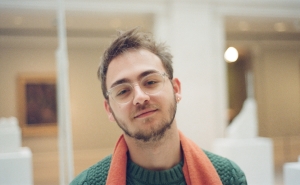
"I wrote my thesis about a 17th-century scholar from Damascus who wrote travelogs that included a lot of poetry," he says. "My argument is that there's a shift in poetic sensibility around that period when poetry becomes no longer a high, timeless thing, as it gets situated in time and space—more in harmony with prose in a way that maybe we don't really see before."
Abi Samra says serving as a teaching assistant helped him realize that he enjoyed both teaching and research, so he is now pursuing a PhD in Near Eastern Studies at Princeton.
"The tremendous diversity of our students, who come to us from all over the world and from many different walks of life, is both another thing that makes our program stand out and something I find especially enriching and exciting about working with them," Morse says.
"Each of the students is a remarkable individual with unique intellectual and life experience, and when they get together in a cohort of 10-12 and start discussing aesthetics, politics, theory and so on, the synergy is incredible!"
Some students enter the program after trying other career paths. Emily Oliveira, Guarini '22, earned her undergraduate degree in comparative literature at Harvard and moved to Los Angeles to work in the film industry for several years before resuming academic studies at Dartmouth. She's now at Columbia, pursuing a PhD in Latin American and Iberian Studies.
"At a critical time in my life when I was trying to choose a career path, Dartmouth offered a perfect opportunity to experience a combination of requirements, exposing me to graduate level discussion and paper writing and workshopping, getting and giving feedback among my cohort, and at the same time acknowledging that the very heart of academic inquiry is flexibility," she says.
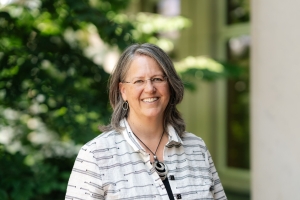
Dartmouth faculty also value and model flexibility, as they combine research, teaching, and administration. Next year, Rebecca Biron, professor of Spanish and Portuguese and the director of the Leslie Center for the Humanities, will become the program's graduate director. She says Dartmouth has earned and maintained a place of distinction in the broadening field of comparative literature programs because of the breadth and depth of faculty willing and able to guide students with strong minds of their own.
"The master's is deliberately structured to be student-project-driven, so they come in knowing what they want to work on for the year, and we help them write a professional quality paper on that topic," says Biron. "Everyone benefits from a year of reflection on the role of language and national literary study within larger globally centered questions of meaning production and literary traditions."
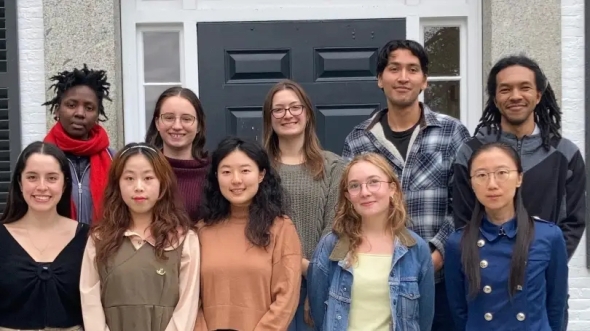
"It's awe-inspiring how many graduate students who come in as active translators, writers, or critics manage to balance work and study," says Associate Professor of German Studies Yuliya Komska, who has also served as graduate program director. "Their accomplishments make the strongest case possible for funding the arts."